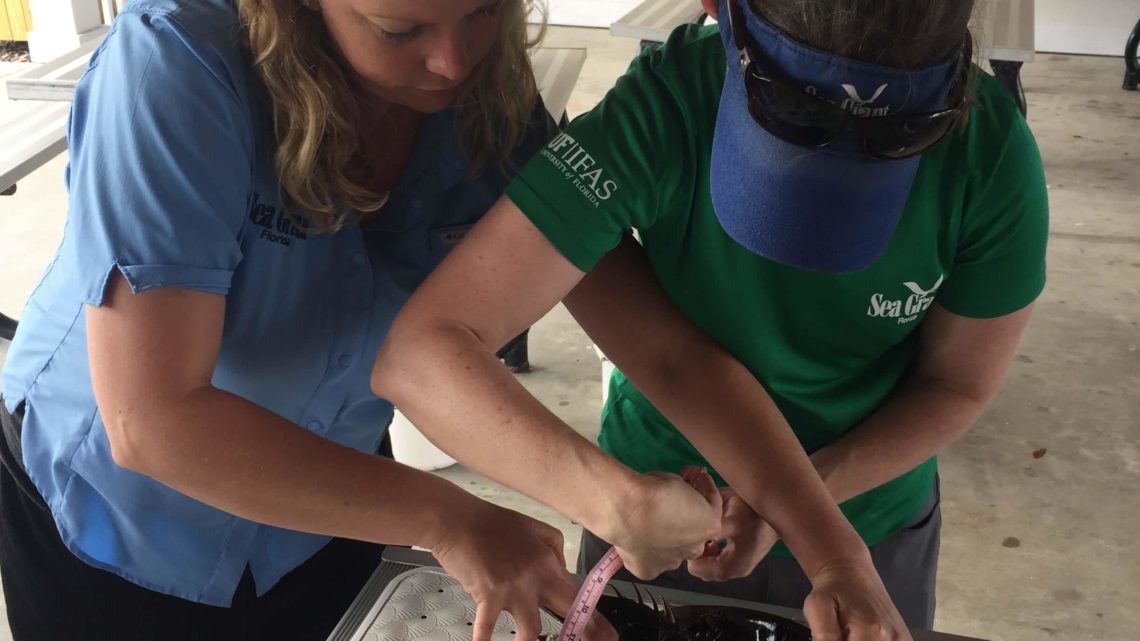MONROE COUNTY EXTENSION SERVICES- 2020 Florida Horseshoe Crab Watch Census! Free VIRTUAL Training Course!
The oldest animal fossil ever found was from a horseshoe crab that was alive 445 million years ago. Horseshoe crabs roamed the continental shelves of the primordial seas 200 million years before the dinosaurs! For this reason, horseshoe crabs are real living fossils. Horseshoe crabs are not actually crabs, their closest ocean cousins are sea spiders and they are related to spiders, ticks, and mites. Some people think their tail is a stinger, but that is false – since they do not have arms they use their tail (called the telson) to turn themselves right side up when they get flipped over. Horseshoe crabs are harmless to humans. In fact, if you have ever had surgery you may have a horseshoe crab to thank for preventing you from getting an infection. They have blue copper-based blood that clots when it encounters bacteria, so the medical industry uses horseshoe crab blood to ensure products placed inside the human body are safe and sterile.
Horseshoe crabs can live more than 20 years and do not begin to reproduce until they turn 8-10 years old. Around that age, the males and females have one final molt, where they shed their old carapace to grow larger. The males grow “boxing gloves” on their front claws, which they use to hold on to the female during mating season. Sometimes the smaller male will stay attached to the larger female for several weeks at a time, and the female drags him behind her up to the beach to lay eggs and then back underwater to eat clams and worms.
We know very little about the horseshoe crab population size or the location of nesting beaches in Monroe County. People regularly report males attached to females and seeing quarter-sized babies so we suspect horseshoe crabs are breeding year around in the Florida Keys. Shelly Krueger is a marine biologist and the Monroe County coordinator of the Florida Horseshoe Crab Watch, which is a partnership with the Florida Fish and Wildlife Conservation Commission, Florida Sea Grant, and Monroe County. We are looking for volunteers to collect data for the first horseshoe crab stock assessment in Florida. The free 1.5-hour training course is now virtual, register today at https://ifas-ncbs.catalog.instructure.com/courses/florida-horseshoe-crab-watch-virtual-volunteer-training.
If you do not want to take the training but still want to report horseshoe crabs, you can call our office at the Monroe County Extension or use the smartphone app called FWC Reporter, which is a great application for reporting all kinds of animals and invasive species sightings. For more information, please contact Shelly Krueger, Florida Sea Grant agent for the UF/IFAS Monroe County Extension, 305-292-4501 or [email protected].
[livemarket market_name="KONK Life LiveMarket" limit=3 category=“” show_signup=0 show_more=0]


No Comment